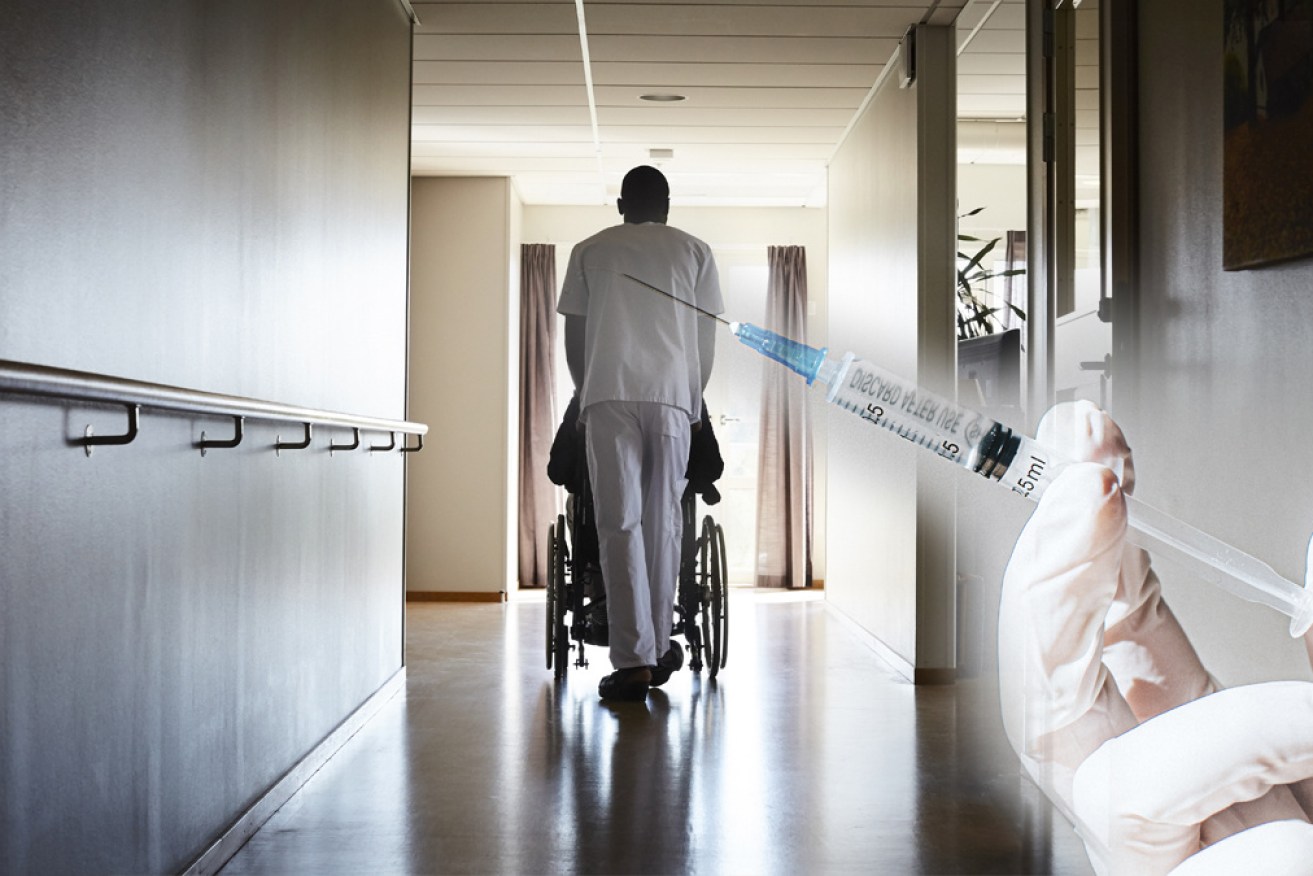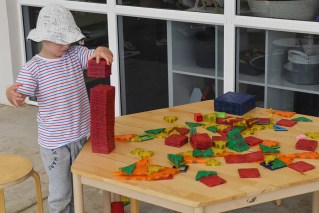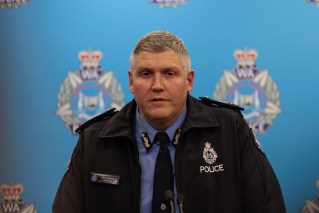‘Abject failure’: Royal commission blasts government over vaccine delays


Aged-care workers aren't obliged to reveal if they have been inoculated, the Health department hyas ruled. Photo: Getty/TND
Fewer than 1000 Australians in disability residential care have received COVID vaccinations, despite being in the highest-priority group for protection, as a royal commission heard powerful evidence from people with a disability who are desperate for a jab.
The Department of Health admitted it had severely underestimated the number of people living in disability care by some 20,000, and that the rollout in that area was going far slower than planned.
“Just give us the vaccine. I’m sitting here nervous not having it,” Uli Kaplan, a young man in disability care, told the royal commission in recorded evidence on Monday.
“It’s extraordinarily stressful … stop saying you’re going to do it, and just do it.”
The Royal Commission into Violence, Abuse, Neglect and Exploitation of People with Disability held a special vaccine-focused hearing on Monday, following eye-opening admissions from the federal Department of Health last month that only a small number of people in disability care had received jabs.
Residents and workers in disability and aged care were listed in the highest-priority Phase 1a of the vaccine rollout. That phase was originally meant to be completed within six weeks of the rollout beginning in February, but it’s now been more than 12 weeks.
Counsel assisting the royal commission, Kate Eastman, told the hearing that statistics from the health department – as of May 11 – showed just 707 people in disability residential care had received first doses, while another 127 received a second dose.
Australia has administered 3.1 million COVID vaccine doses, as of Monday.
Ms Eastman said the commissioners could find that the disability numbers had been an “abject failure” of the vaccine rollout.
Most recent data: 11 May.
Only 834 ppl with disability in residential care have been vaccinated.
707 ppl have received 1 dose.
127 ppl have received 2 doses.That's a grand total of 127 disabled people in residential care fully vaccinated by May 11. #DisabilityRC
— People with Disability Australia (PWDA) (@PWDAustralia) May 17, 2021
Health minister Greg Hunt later provided an update, saying that as of midday on Monday, 999 people in disability residential care had received at least a first dose. Another 1527 disability workers had also been vaccinated.
There are around 26,000 people living in disability residential care.
“Scott Morrison has completely abandoned these priority Australians,” claimed Labor’s shadow health minister, Mark Butler.
Disability and aged care vaccinations are being done through “in-reach” programs where medical teams visit the facility to give jabs, or “out-reach” where workers and residents visit doctors or clinics.
The federal government notes that more residents and workers in disability care have likely been vaccinated, under their own steam through “out-reach” at standard medical practices, but that the government isn’t able to collect that data yet.
At an April Senate hearing, the Department of Health protested that it had been focusing on getting aged care residents vaccinated as its top priority. Now, some 85 per cent of those residents are vaccinated, and vaccination logistics coordinator Commodore Eric Young said the rollout would now be able to “ramp up other vulnerable cohorts”.
“We are moving to the next phase of our in-reach rollouts. The primary focus has been aged care, based on the vulnerability guidance that we’ve had, and now we’re moving to the next area,” Mr Hunt said on Monday.
This daily infographic provides the total number of vaccine doses administered in Australia as of 16 May 2021. Stay up to date with COVID-19 vaccine information here: https://t.co/TUKfzVuGVm #COVID19vaccines #COVID19 pic.twitter.com/zoIKTX4P90
— Australian Department of Health and Aged Care (@healthgovau) May 17, 2021
The health minister said teams which had been working to vaccinate aged care residents were now being “redeployed” into disability care. He also said the government was working to “prioritise” disability residents and workers to get vaccines through out-reach facilities, such as general clinics and GPs.
Mr Butler said “that simply is not good enough.”
“If we have an outbreak in the community again, we know from bitter tragic experience that the most vulnerable Australians in that breakout are those living in residential care and residential disability care,” he said.
“They’ve got to bring resources to bear to send teams into those facilities and vaccinate these groups as a priority.”
The. Australian Healthcare and Hospitals Association, the peak body for public hospitals, tweeted that the statistics were “disgraceful”.
Health associate secretary, Caroline Edwards, admitted the department had underestimated the number of people in disability care, initially estimating just 6000 people when the true number was 26,000.
She also admitted the department had explicitly decided to put aged care residents first, but could have communicated that better to the disability sector.
The royal commission had earlier heard from Catherine McAlpine, CEO of disability organisation Inclusion Australia, who said it was “gobsmacking” to hear in April that aged care had been prioritised. She said her group had not previously been told this, and claimed disability residents had been put in the “too hard basket”
“We’ve been having regular meetings with the health department and we understood people in group homes were equally a priority as people in residential aged care,” Ms McAlpine said.
“We were not aware that such little progress had been made and we were not aware there had been an internal decision to prioritise people in residential aged care.”
The royal commission heard from several residents in disability care, who said they were frustrated about the speed of the vaccine rollout.
“It’s taken way too long”, Mr Kaplan said.
“Throw politics out the window, stop saying we’re the best country… just give us the vaccine.”
Mr Kaplan said he had confined himself to his unit for “three and a half months” when there had been several COVID cases nearby, due to fears “for my own safety”.
“You’re saying we’re rolling out, but it’s gone from the end of the year to the end of next year,” he said of the shifting vaccination roadmap targets.
“Stop arguing with each other, stop fighting, work together and get the vaccine out. Normal people have the right to the vaccine, we have the right to get the vaccine.”








